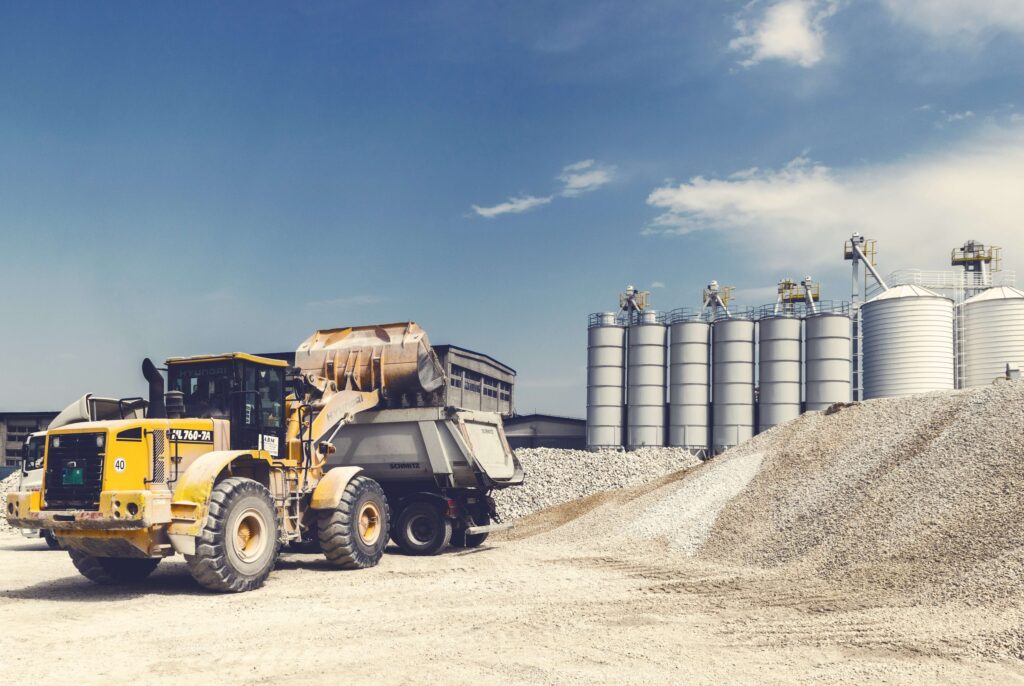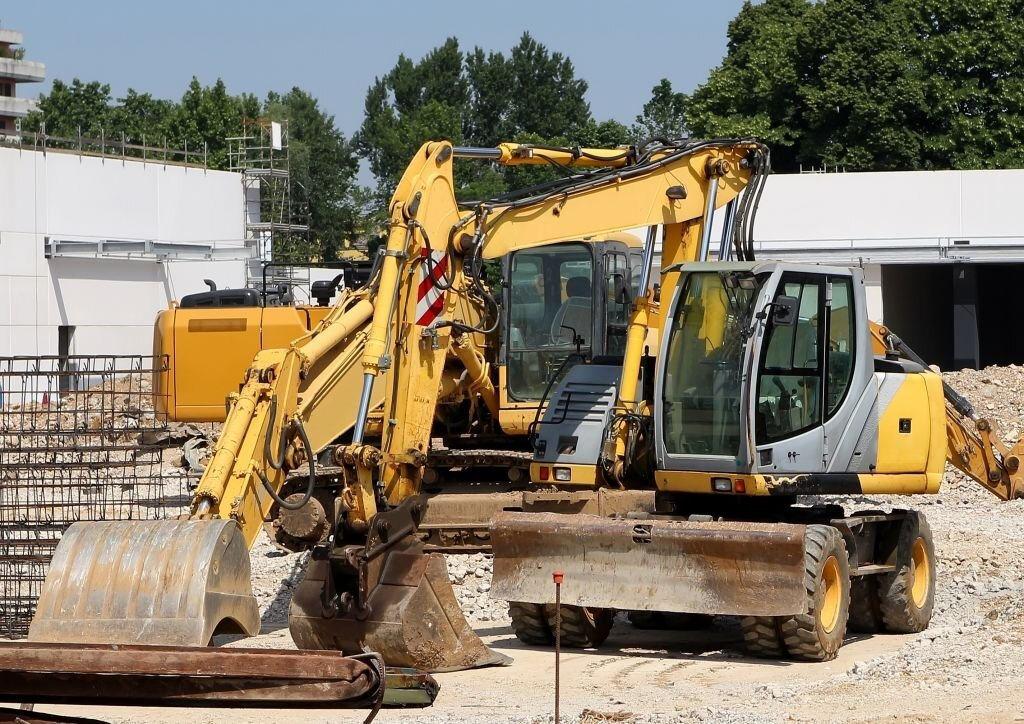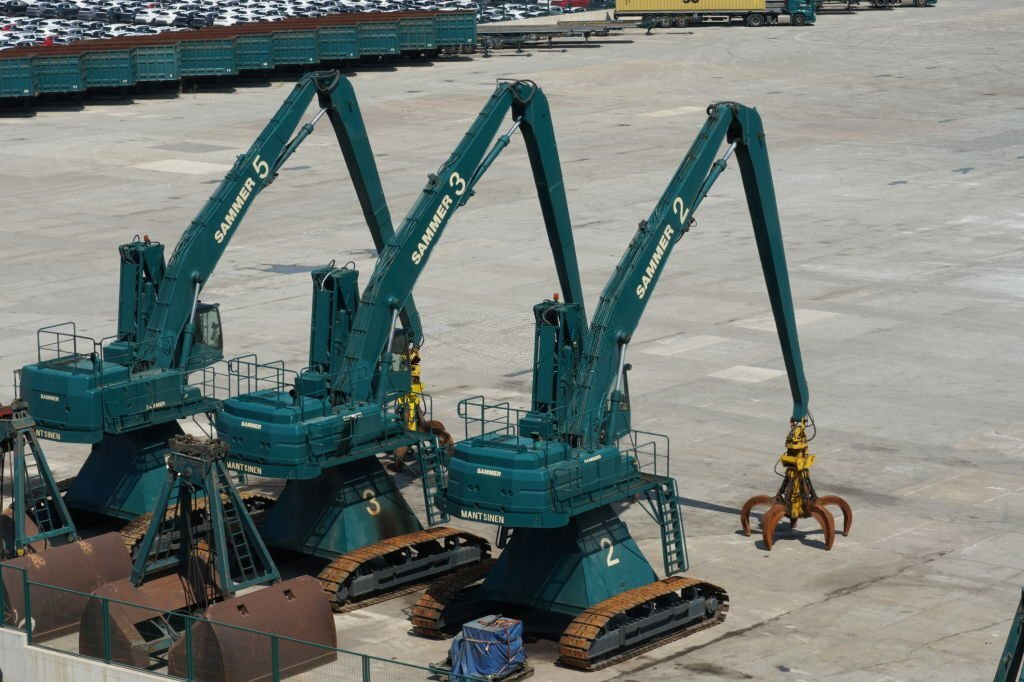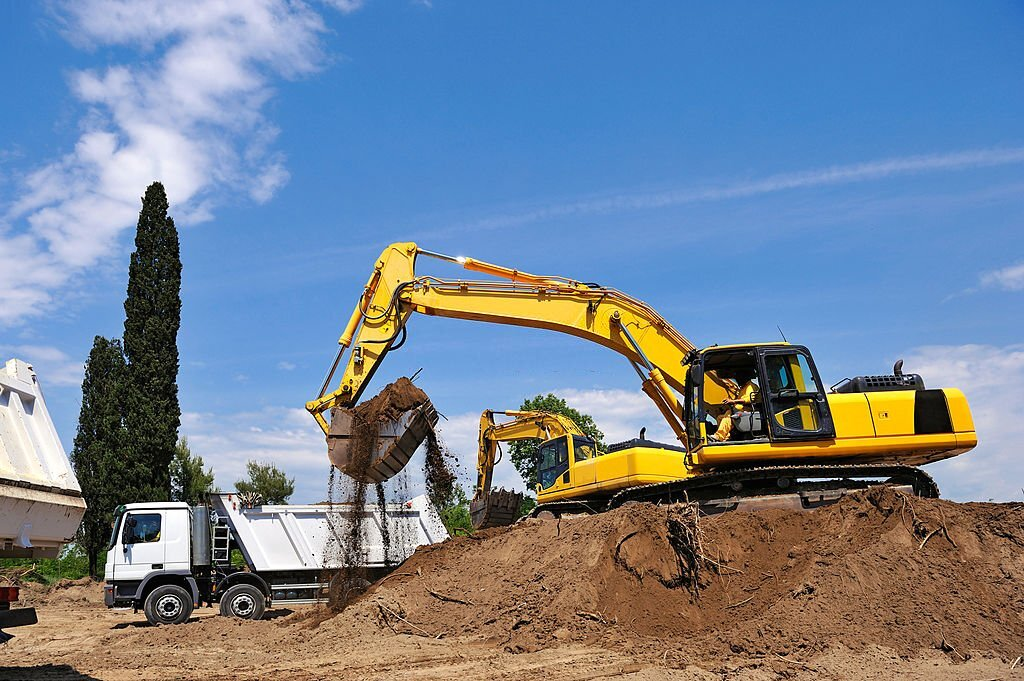
Are you curious about how much fuel an excavator uses per hour? You’re not alone! Fuel consumption is an essential factor to consider when operating heavy machinery, as it can significantly impact both your budget and the environment.
In this article, we’ll delve into the factors that affect fuel consumption, explore various types of excavators and their fuel consumption rates, and discuss ways to improve fuel efficiency. We’ll also touch on the environmental impact of excavator fuel consumption and explore alternative fuel options for these powerful machines.
Whether you’re a construction professional or just genuinely interested in learning about these impressive machines, understanding fuel consumption is vital. As we explore the topic, you’ll gain insights into how to make informed decisions regarding excavator usage, efficiency, and the overall impact on your budget and the environment.
Factors Affecting Fuel Consumption
Imagine revving up your excavator, knowing that factors like engine size, workload, and operating conditions can all impact the fuel it guzzles per hour. You’ll soon realize that fuel consumption isn’t a one-size-fits-all calculation.

For instance, engine load plays a significant role in the amount of fuel used. If your excavator is working at full capacity, lifting and moving heavy materials, it’s going to burn through fuel much faster than if it were just idling or tackling a light job. Similarly, terrain impact can make a difference as well. Navigating through rough, uneven, or sloped terrain requires more power and effort from the excavator, leading to increased fuel consumption.
Another key factor to consider is the machine’s efficiency and maintenance. A well-maintained excavator with a clean engine, well-lubricated parts, and properly inflated tires will generally consume less fuel compared to a neglected one. The operating technique also matters – using the correct digging and lifting methods can help reduce fuel consumption.
Types of Excavators and Their Fuel Consumption Rates
As you explore the world of excavators, you’ll come across various types, such as mini excavators, mid-size excavators, and large excavators. Each of these machines has its own fuel consumption rates, which can impact your project costs and efficiency.
In order to make the best decision for your needs, it’s important to understand the differences between these excavator types and their respective fuel consumption rates.

Mini Excavators
When you’re operating a mini excavator, you’ll typically find it consumes between 1 to 2 gallons of fuel per hour, making it a more fuel-efficient choice for smaller projects. These compact options are perfect for tight spaces, residential work, or landscaping projects where maneuverability and ease of use are top priorities.
Mini excavators are also great rental considerations for those who only need the machinery for a short period, as their lower fuel consumption rates help keep operational costs down. In addition to their fuel efficiency, mini excavators also have the advantage of being easier to transport and causing less damage to the surrounding environment.
Mid-Size Excavators
You’ll appreciate the power and versatility of a mid-size excavator, which offers impressive digging capabilities while maintaining reasonable fuel efficiency for your projects.

These machines typically consume between 3 to 6 gallons of fuel per hour, depending on factors like engine size, operating conditions, and excavator attachments.
Mid-size excavators come with a wide range of attachments that can help you accomplish various tasks, from digging trenches to breaking up concrete.
Keep in mind that using heavier or more powerful attachments may increase fuel consumption, so it’s essential to select the right tool for the job to optimize efficiency.
Another crucial aspect that can affect fuel consumption is operator training.
Large Excavators
In the realm of large excavators, it’s important to consider the balance between their powerful capabilities and the associated fuel consumption. These machines are designed for heavy-duty tasks, such as demolition, mining, and large-scale construction projects. As a result, they typically consume more fuel than their mid-size counterparts.

Fuel consumption for large excavators can range from 6 to 12 gallons per hour or more, depending on the specific model and operating conditions. Keep in mind that factors such as engine efficiency, hydraulic system design, and workload can all impact the amount of fuel used.
Ways to Improve Fuel Efficiency
Boosting an excavator’s fuel efficiency can be a game changer, saving you both time and money on the job site. One way to improve fuel efficiency is by utilizing smart technologies, such as eco-mode, auto-idle, and auto-shutdown features. These technologies can help optimize the machine’s performance while reducing fuel consumption.
Investing in operator training can greatly impact fuel efficiency, as skilled operators are more likely to use the machine in the most fuel-efficient way possible. Another approach to improving fuel efficiency is by maintaining your excavator properly. Regular maintenance checks, such as monitoring tire pressure, checking for leaks, and cleaning the air filter, can all contribute to better fuel consumption.
Environmental Impact of Excavator Fuel Consumption

As you consider the environmental impact of excavator fuel consumption, it’s essential to examine emissions and air quality. Heavy equipment, like excavators, contributes to the release of greenhouse gases and particulate matter, which can adversely affect air quality.
Additionally, noise pollution from these machines can disrupt surrounding ecosystems and communities. It’s crucial to find ways to mitigate these effects.
Emissions and Air Quality
You’ll be amazed to know that the fuel consumption of an excavator can impact emissions and air quality significantly. The combustion of diesel fuel in excavators releases airborne particulates, contributing to smog formation and poor air quality.
The more fuel an excavator uses, the more emissions it produces, affecting not only the environment but also the health of those in the vicinity. It’s essential to minimize excavator fuel consumption to reduce these harmful emissions.
Noise Pollution
In addition to emissions, noise pollution is another pressing concern when it comes to operating excavators on construction sites. The constant roar of engines, the clanking of metal, and the beeping of reversing vehicles can be bothersome to nearby residents and businesses, as well as potentially harmful to workers’ hearing. As a result, noise mitigation should be a top priority in order to minimize the impact of construction activities on the surrounding community and maintain a safe working environment.
Alternative Fuel Options for Excavators
Believe it or not, there’s a growing interest in alternative fuel options for excavators to reduce their environmental impact and fuel consumption. One such option is biofuel adoption, where excavators run on fuels made from organic materials like vegetable oils or animal fats, thus reducing the reliance on fossil fuels.
Additionally, electric excavators are gaining traction in the construction industry as they produce zero exhaust emissions, consume less energy, and operate quietly. environmental footprint.
Excavator Fuel Consumption per Hour: Factors, Efficiency, and Cost Management
Efficient fuel management is a crucial aspect of operating heavy machinery, and excavators are no exception. Construction and excavation projects often rely on excavators to get the job done, making it essential to understand the factors that influence fuel consumption per hour. In this article, we’ll delve into excavator fuel consumption, explore the role of engine power, load factors, and job site conditions, and provide insights on how to optimize fuel efficiency while managing fuel costs.
Understanding Excavator Fuel Consumption
1. Engine Power and Fuel Consumption:
Excavators come equipped with engines of varying power levels. Generally, higher engine power corresponds to increased fuel consumption. However, a more powerful engine may be necessary for handling demanding tasks.
2. Fuel Consumption Rate:
The rate at which an excavator consumes fuel is measured in gallons per hour (GPH). Manufacturers typically provide fuel consumption figures for their machines under specific loads and operating conditions.
3. Load Factor:
The load factor, or the percentage of time an excavator operates under a load, significantly affects fuel consumption. More demanding tasks with heavy loads can lead to higher fuel consumption per hour.
Calculating Fuel Costs
1. Fuel Costs:
Understanding the excavator’s fuel consumption rate is essential for estimating fuel costs accurately. Multiplying the GPH rate by the current fuel price provides an estimate of hourly fuel expenses.
2. Fuel Tank Size:
The size of the excavator’s fuel tank plays a role in managing fuel costs. A larger fuel tank allows for longer operation without refueling, potentially reducing downtime.
3. Fuel Savings Measures:
Implementing fuel-saving measures, such as proper maintenance, efficient operation, and adherence to manufacturer recommendations, can contribute to substantial fuel savings over time.
Factors Influencing Fuel Consumption
1. Job Site Conditions:
Job site conditions, including terrain, soil type, and weather, can influence an excavator’s fuel consumption. Adverse conditions may require more power, leading to higher fuel usage.
2. Operator Skill and Technique:
The operator’s skill and technique play a significant role in fuel efficiency. Properly trained operators who prioritize smooth, efficient movements can help minimize fuel burn.
3. Other Factors:
Additional factors, such as the machine’s age, condition, and maintenance history, can impact fuel consumption. Well-maintained excavators tend to be more fuel-efficient.
Optimizing Fuel Efficiency
1. Monitor Fuel Burn:
Keep track of fuel consumption and regularly analyze the excavator’s fuel burn rate to identify areas for improvement.
2. Caterpillar Performance Handbook:
Consult manufacturer resources like the Caterpillar Performance Handbook, which provides valuable insights into machine performance, including fuel consumption data.
3. Efficient Job Planning:
Plan jobs efficiently to minimize idle time and unnecessary movements, optimizing fuel efficiency.
Calculating Diesel Consumption in Wheel Loaders: Maximizing Efficiency and Profitability
Wheel loaders are vital pieces of equipment in construction, agriculture, and various industries. Efficient operation of these machines requires a clear understanding of diesel consumption and the factors that influence it. In this article, we will explore the methods for calculating diesel consumption in wheel loaders, examine the various factors that impact fuel efficiency, and provide insights on how to optimize operations for increased profitability.
Understanding Diesel Consumption
1. Diesel Required per Hour:
Calculating diesel consumption in wheel loaders involves determining the amount of diesel fuel needed to operate the machine for a specified number of hours. This figure is typically measured in gallons or liters per hour (GPH or LPH).
2. Factors Affecting Diesel Consumption:
Several factors influence diesel consumption in wheel loaders, including engine efficiency, operating conditions, machine size, and load factors. Understanding these variables is essential for optimizing fuel efficiency.
Calculating Diesel Consumption
1. Engine Horsepower (HP):
One of the primary factors influencing diesel consumption is the engine’s horsepower. Higher horsepower engines generally consume more fuel. To calculate fuel consumption, you can refer to the machine’s specifications provided by the manufacturer.
2. Operating Conditions:
Operating conditions play a crucial role in fuel consumption. Tasks that require more power, such as lifting heavy loads or working on uneven terrain, will result in increased fuel usage.
3. Load Factors:
Load factors, or the percentage of time the wheel loader operates with a load, impact fuel consumption. Machines operating under heavy load conditions will consume more fuel per hour.
4. Control and Operation:
Operator control and technique significantly affect fuel efficiency. Smooth and efficient operation, avoiding unnecessary acceleration or braking, can help reduce fuel consumption.
Maximizing Fuel Efficiency
1. Efficient Shift Scheduling:
Plan shifts and work schedules to maximize productivity while minimizing idle time. Efficient scheduling can help reduce overall fuel consumption.
2. Proper Equipment Maintenance:
Regular maintenance, including engine tune-ups and air filter replacements, ensures that the wheel loader operates at peak efficiency, reducing fuel wastage.
3. Operator Training:
Invest in operator training to promote efficient machine operation. Well-trained operators are more likely to optimize fuel consumption during their shifts.
4. Monitoring and Control:
Install monitoring systems that provide real-time data on fuel consumption. This information can help operators adjust their behavior to reduce unnecessary fuel burn.
Conclusion
In conclusion, it’s essential to consider the factors affecting fuel consumption when operating an excavator. By understanding the different types of excavators and their fuel consumption rates, you can make informed decisions to improve efficiency and reduce environmental impact.
Don’t forget to explore alternative fuel options for excavators, as they can offer significant long-term benefits. Keep striving for better fuel efficiency and eco-friendliness in your construction projects

